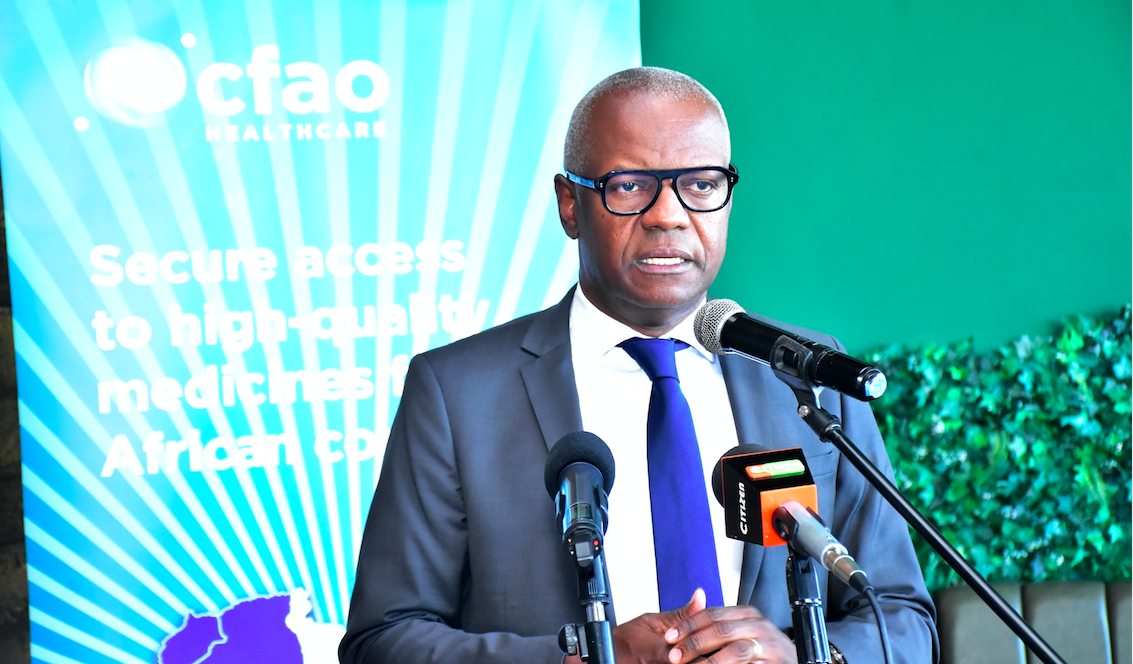 Ken Accajou, deputy CEO, CFAO Healthcare and head of English and Portuguese-speaking area Retail.
Ken Accajou, deputy CEO, CFAO Healthcare and head of English and Portuguese-speaking area Retail.
A newly released white paper publication suggests that the use of falsified antimalarials could be causing over 100,000 unnecessary deaths in Africa.
The publication by CFAO, a pharmaceutical distributor in Africa, and the OPALS Foundation, also suggests that one in three medicines circulating in Africa may be fake.
However, the World Health Organization (WHO) reports that only one in 10 medical products in Africa are substandard or falsified. These fake medicines are especially antimalarials and antibiotics.
In Kenya, where over 70 per cent of medicines are imported, a fragmented distribution network and rising cases of fake drugs are exposing patients to life-threatening risks.
The white paper titled “Securing the Medicine Distribution Network in Africa” indicates that women are excessively exposed with African women being 130 times more likely to die from complications related to pregnancy or childbirth than European and North American women.
For economic, geographical or cultural reasons, or due to unavailability of quality medicines in pharmacies, many African women resort to the informal market posing an immense and intolerable risk to them. As a result, for example, a pill that was banned in Kenya ten years ago is still circulating covertly.
The CFAO white paper raises awareness on the critical role of official medicine distribution networks across Africa, and specifically in Kenya. It explores key actors, existing frameworks, and highlights the urgent need for a reliable, traceable supply chain to guarantee the integrity of medicines reaching patients.
Speaking at the release of the white paper, Ken Accajou, deputy CEO of CFAO Healthcare & Head of English and Portuguese-speaking Area Retail, said: “The medicine distribution crisis in Africa is not just a supply chain issue but a matter of life and death. While Kenya is doing well because of a strong private sector, this white paper is a call to action: we must strengthen official channels and empower local health systems to better protect their people.”
The publication is grounded in robust data, expert analysis, and testimonials from across the healthcare ecosystem including government agencies, pharmacists, NGOs, and medical laboratories. These insights are aimed at driving actionable change and fostering a safer, more accessible and efficient pharmaceutical system for all.
“Kenya has made great strides in healthcare, but the fight against counterfeit medicines remains a major challenge,” added Gavin Pearson, CEO of CFAO Healthcare Kenya.
“By bringing together government, regulators, and private sector players, we can build a safer and more transparent pharmaceutical supply chain. Our goal at CFAO Healthcare Kenya is to ensure that every patient receives genuine, high-quality medicine, no matter where they are.”
The white paper also highlights the factors that fuel the illegal pharmaceutical market in Africa: limited access to affordable medicines, supply chain gaps, and the unchecked rise of street markets where unverified drugs are sold. In Kenya, such parallel networks have grown in areas with poor regulatory reach- endangering lives and draining trust from the formal healthcare system.










